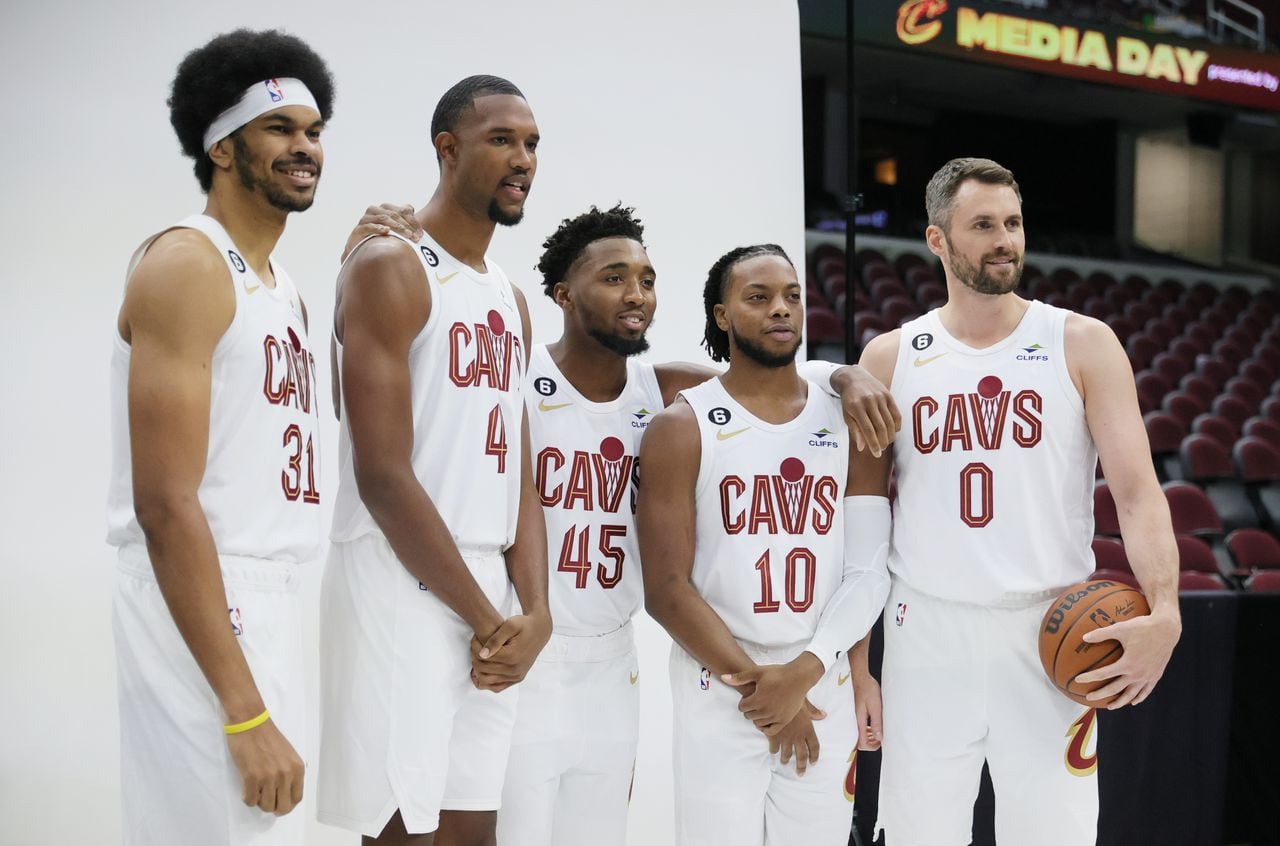Cleveland Cavaliers: Identifying The Primary Playoff Challenges After Boston

Table of Contents
Offensive Consistency and Playmaking Beyond Mitchell
The Cavaliers' offense, while potent at times, showed a concerning reliance on the scoring prowess of Donovan Mitchell and Darius Garland. This over-dependence hampered their offensive efficiency, especially when facing elite defenses like the Boston Celtics. The Cavaliers offense needs diversification; simply put, they need more consistent scoring options beyond their two star guards.
-
The need for improved ball movement and secondary playmaking: The Celtics effectively shut down penetration drives, forcing the Cavs into difficult one-on-one situations. Improving ball movement and developing secondary playmakers is critical. Players need to be more decisive with the basketball, creating better passing opportunities and exploiting defensive mismatches.
-
Enhancing offensive efficiency beyond isolation plays: The reliance on isolation plays became predictable, allowing the Celtics to successfully defend the Cavs' core players. A more fluid offensive system, incorporating off-ball screens, cuts, and quick passes, would create more scoring chances and reduce the burden on Mitchell and Garland.
-
Specific Strategies for Improvement:
- Develop more consistent off-ball movement to create spacing and better passing lanes.
- Improve passing lanes and decision-making to capitalize on defensive breakdowns.
- Integrate other players, such as Caris LeVert or Evan Mobley, more effectively into the offensive scheme, giving them more opportunities to create their own shots or score off assists.
Defensive Vulnerability Against Elite Offensive Teams
The Boston Celtics’ high-octane offense exposed significant vulnerabilities in the Cavaliers' defensive strategy. The Cavaliers defense, while showing flashes of brilliance, struggled against the Celtics' quick ball movement and efficient scoring. Their performance highlighted the need for immediate and substantial defensive improvements.
-
Addressing weaknesses in perimeter defense and rebounding: The Celtics consistently found success attacking the perimeter, exploiting gaps in defensive rotations and securing crucial offensive rebounds. Improved defensive communication and individual defensive skills are essential.
-
The necessity for better transition defense strategies: The Celtics' ability to transition quickly from defense to offense created numerous easy scoring opportunities. The Cavaliers need to improve their transition defense, focusing on getting back on defense quickly and executing effective defensive schemes in transition.
-
Key Areas for Defensive Improvement:
- Improve defensive communication and rotations to minimize open shots and defensive breakdowns.
- Enhance individual defensive skills, such as on-ball defense, help defense, and defensive positioning.
- Focus on boxing out and securing rebounds more consistently to limit second-chance points.
Bench Production and Depth
The Cavaliers' bench production was inconsistent throughout the playoffs. While certain players contributed effectively at times, overall, the Cavaliers roster lacked sufficient scoring and consistency from its reserves, a significant factor in their series loss. Increasing bench depth is crucial for playoff success.
-
Evaluating the performance of the Cavaliers' bench players: While individual players showed potential, sustained contributions from the second unit were lacking. A more reliable bench could provide essential support and rest for starters.
-
Identifying areas for improvement in bench scoring and consistency: The need for more consistent scoring and reliable play from the bench is clear. The coaching staff needs to find a better balance and develop consistent roles for bench players.
-
Strategies to Improve Bench Depth:
- Explore the potential for adding more experienced players in the off-season to boost scoring and experience.
- Develop the younger players' roles and responsibilities to provide a more reliable backup.
- Evaluate the efficiency of current bench rotations and adjust strategies based on player performance and matchups.
Mental Fortitude and Playoff Experience
The playoffs demand intense mental fortitude and resilience, traits that the Cavaliers need to cultivate further. While their regular season performance was strong, the team sometimes lacked the mental toughness needed to overcome adversity in high-pressure playoff situations. Playoff experience is valuable, but mental conditioning is crucial for sustained success.
-
Analyzing the team’s mental resilience: The Cavaliers need to improve their ability to remain composed and execute under immense pressure. Developing strategies for managing stress and maintaining focus is vital.
-
Leveraging playoff experience: While lacking extensive playoff experience as a cohesive unit, the Cavs should leverage the lessons learned from this year's playoff run to bolster their mental preparation for future postseasons.
-
Building mental toughness: The team needs to develop a stronger collective mental approach, focusing on developing a resilient mindset, improving focus, and enhancing accountability.
-
Specific Strategies for Improvement:
- Implement practices focused on managing pressure, maintaining composure, and developing strategies to recover from setbacks.
- Foster a team culture of resilience and accountability, encouraging players to learn from mistakes and support each other.
- Incorporate mental conditioning techniques, including mindfulness, visualization, and positive self-talk.
Conclusion
The Cleveland Cavaliers showcased immense potential during the regular season and playoffs. However, their series loss to the Boston Celtics highlighted areas needing focused improvement. Addressing offensive consistency, defensive vulnerabilities, bench production, and mental fortitude will be crucial for future playoff success. The path to the NBA Finals for the Cleveland Cavaliers necessitates a concentrated effort to overcome these playoff challenges. Let's continue to follow the Cavs’ journey and witness their progress in strengthening these aspects of their game. #Cavs #NBAPlayoffs #ClevelandCavaliers

Featured Posts
-
 Hqayq Mthyrt La Terfha En Jaky Shan Mn Mshwarh Alfny Ila Hyath Alshkhsyt
May 07, 2025
Hqayq Mthyrt La Terfha En Jaky Shan Mn Mshwarh Alfny Ila Hyath Alshkhsyt
May 07, 2025 -
 Le Lioran Depuis Onet Le Chateau Hebergements Et Activites
May 07, 2025
Le Lioran Depuis Onet Le Chateau Hebergements Et Activites
May 07, 2025 -
 Draymond Greens Night Night Celebration Did Steph Curry Offer Advice
May 07, 2025
Draymond Greens Night Night Celebration Did Steph Curry Offer Advice
May 07, 2025 -
 Is This Xrps Big Moment Etf Applications Sec Actions And Market Impact
May 07, 2025
Is This Xrps Big Moment Etf Applications Sec Actions And Market Impact
May 07, 2025 -
 Can Germanys New Chancellor Revive European Leadership
May 07, 2025
Can Germanys New Chancellor Revive European Leadership
May 07, 2025
